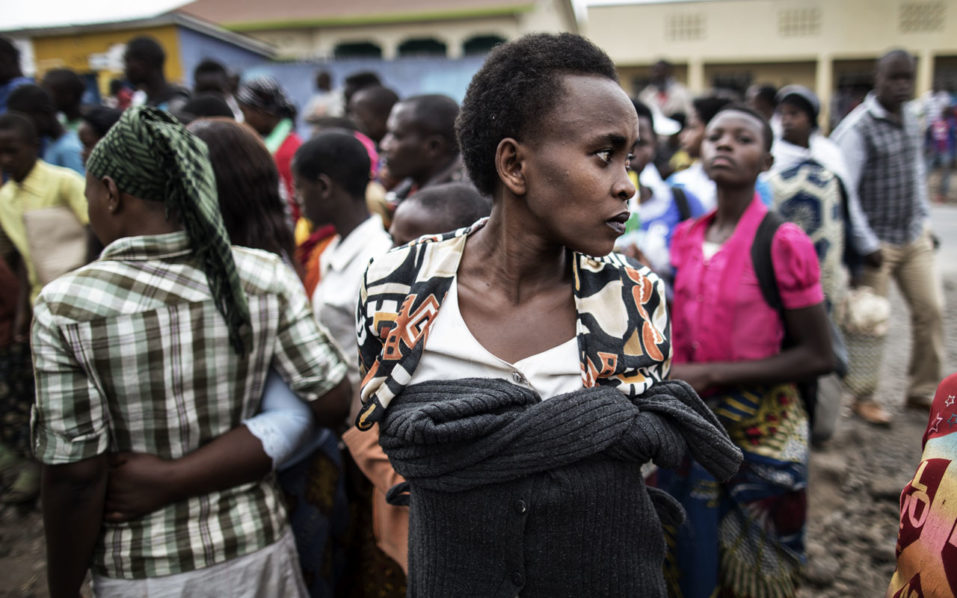
Here are key dates since President Paul Kagame’s ruling Rwandan Patriotic Front (RPF) took control of Rwanda in 1994.
1994: Genocide and takeover in Kigali
On July 4, 1994, the armed wing of the RPF — which launched a civil war four years earlier from Uganda where its founding Tutsi members were exiled — captures Kigali.
The seizure of the capital halts 100 days of genocide in which extremist Hutus killed 800,000 people, primarily minority Tutsis.
A million Hutus, including those held responsible for the worst massacres, flee across the western border to Zaire, now the Democratic Republic of Congo (DRC).
Pasteur Bizimungu, a Hutu allied with the RPF, is named president, and RPF leader Paul Kagame becomes the vice-president and defence minister.
On November 8, the UN creates the International Criminal Tribunal for Rwanda to prosecute those responsible for the genocide.
Based in Tanzania, the ICTR operates for 20 years and convicts several dozen suspects, while related trials also take place in countries including Belgium and France.
1996: First foray into Zaire/DRC
In September 1996, Rwandan troops enter Zaire, citing a security threat from Hutu extremists in refugee camps. Thousands of refugees are forcibly repatriated.
The Rwandan military backs a rebellion led by Laurent-Desire Kabila, which ousts Zaire’s leader Mobutu Sese Seko in 1997. Kagame admits Rwanda planned and executed the insurgency.
In July 1998, Kabila orders Rwandan troops out of the DRC.
Rwanda switches sides on the grounds that Kabila was not as set on pursuing Hutu genocidaires in his country as had been hoped. Kigali supports a new rebellion against Kabila which broke out on August 2.
This leads to a major conflict that lasts five years, with several nations backing either side. It left at least three million dead, according to a consensus casualty toll in what became known as “Africa’s World War”.
2000: Kagame becomes president
Bizimungu resigns in March after months of internal power struggles in the RPF. Kagame — long considered the most powerful man in the country — is elected president on April 17.
Kagame wins re-election in 2003 and 2010, each time with more than 90 percent of the vote.
– 2006: Diplomatic relations with France break down –
On November 24, 2006, Kigali breaks off diplomatic ties with Paris after a French judge charges that Kagame and nine others were involved in an attack that killed Rwandan president Juvenal Habyarimana and triggered the 1994 genocide.
Relations are restored in 2009 but remain troubled and subject to developments in the French investigation.
Ahead of the genocide’s 20th anniversary, Kagame accuses Paris of playing a “direct role” in Habyarimana’s assassination, and of taking part in “his execution.” On November 29, 2016, Kigali launches an inquiry into the role of 20 French officials in the genocide.
2010: Opposition crackdown
After returning from exile in January 2010, opposition leader Victoire Ingabire is arrested in October after publicly asking that the perpetrators of crimes against Hutus also be punished.
Two years later she is sentenced to eight years in prison for terrorism and belittling the genocide.
Ingabire appeals against the conviction but loses, and in December 2013 her sentence is extended to 15 years.
Meanwhile, former Rwandan army chief turned opponent Faustin Kayumba Nyamwasa is wounded on June 19, 2010 in Johannesburg, in an attack he blames on Kagame.
[ad unit=2]
On June 24, journalist Jean Leonard Rugambage is shot dead in Kigali after he accuses Kagame’s regime of trying to kill Nyamwasa.
Patrick Karegeya, a former Kagame ally and ex-spy chief, is strangled to death in Johannesburg on January 1, 2014. Kagame tells a prayer breakfast in Kigali 11 days later that “treason brings consequences.”
2015: Constitutional reform
On December 18, 2015, a referendum on constitutional reforms allowing Kagame to seek a third term in office passes with 98.4 percent voting in favour. The change means Kagame could run in later elections and may be able to stay in power until 2034.



